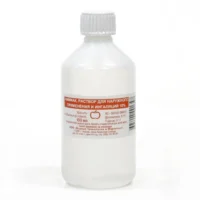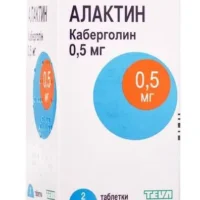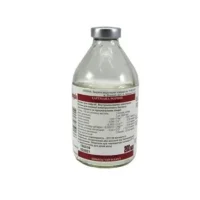Description
Loperamid Capsules 2 mg. №20
Ingredients
- Each capsule contains 2 mg of Loperamide hydrochloride.
Dosage
- The usual adult dosage is 2 capsules initially, followed by 1 capsule after each loose stool.
Indications
- Loperamid capsules are indicated for the control and symptomatic relief of acute nonspecific diarrhea.
Contraindications
- Do not use in patients with a known hypersensitivity to Loperamide or in the presence of abdominal distention.
Directions
- Take the capsules by mouth with or without food as directed.
Scientific Evidence
Loperamide, the active ingredient in these capsules, works by slowing down the movement of the intestines, reducing the frequency of bowel movements, and making the stool less watery. Studies have shown its effectiveness in treating acute diarrhea by significantly reducing the number of bowel movements.
Additional Information
- It is important to drink plenty of fluids while using Loperamide capsules to prevent dehydration.
- If diarrhea persists for more than 48 hours, seek medical advice.
- Keep out of reach of children.
Research supports that Loperamide is well-tolerated with a low risk of side effects when used appropriately. Clinical trials have demonstrated its efficacy in providing rapid relief from diarrhea symptoms, making it a commonly recommended treatment option.





